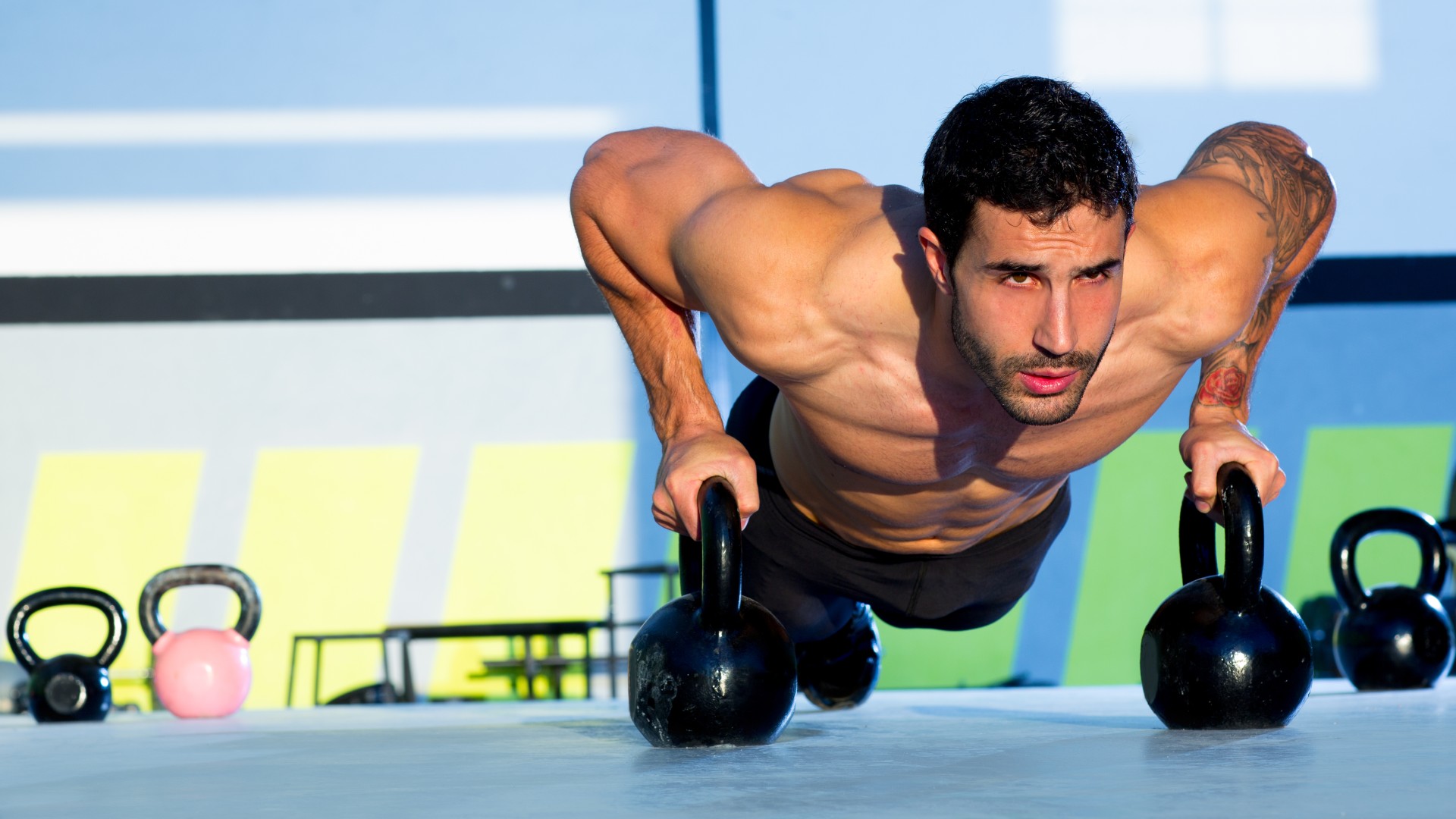
The 4-move kettlebell complex below is perfect for anyone who can carve out twenty minutes and wants to work their whole body from head to toe.
Using one of the best kettlebells for weightlifting, JTM Fit promises to “help you gain functional strength, build muscle, take your conditioning to the next level and build a strong mindset.”
I gave it a go, rolling out my exercise mat, lacing up my sneakers and ramping up the tunes. It’s accessible, a serious muscle-torcher and a total sweat fest from start to finish — and it’s over quickly. Here’s the workout, along with some trainer tips for success.
What is a kettlebell complex?
Coach Jay says, “A kettlebell complex is when you take a series of exercises and perform the prescribed reps of those exercises in sequence.” That means without rest until you’ve completed each exercise and the given reps.
This particular kettlebell workout uses the EMOM format, meaning every minute on the minute. Coach Jay recommends picking a mid-range weight (he uses 35 pounds/ 16kg, and I used 12kg), which should allow you to hit the correct intensity. If you need to scale during the workout, you can.
Complexes are hugely popular in the kettlebell training community because you can get a lot of work done in a short time and overload the muscles quickly. They're also brilliant at leveling up your conditioning, building muscle and stability and increasing your capacity to tear through calories during and after workouts.
Watch JTM Fit’s 20-minute kettlebell complex
EMOM:20
- Hang snatch x 5 reps
- Front squat x 5 reps
- Hang clean x 5 reps
- Push press x 5 reps
Complete 5 reps of each exercise back to back on one side of your body with proper technique, then rest for the remainder of the minute. The quicker you finish your reps, the more rest you’ll get, but make sure you don’t compromise your form to finish them.
On the next minute, switch sides, complete the five exercises and reps for that side of your body, then rest. You’ll alternate arms for the full workout, performing exercises back to back each time.
Kettlebell hang snatches
We recommend learning more about how to do kettlebell snatches here and practicing your technique before jumping in. Start with an overhand grip on the bell and hinge forward at your hips, then drive the weight overhead as you stand and flip the bell to rest at your forearm, locking your arm out at the top.
It’s a technical move to master, so watch the video first and avoid smacking the weight against your arm. Be explosive and keep the weight close to your body.
Kettlebell front squats
Once you’ve finished the five reps, re-rack your kettlebell to the front rack squat position at your shoulder, then perform five squats. Sit low into the squat position with thighs parallel to the floor, keeping your chest lifted and spine neutral (no hunching). Brace your stomach to keep your torso stable as you move.
Although it's a leg exercise, loading one side of your body teaches balance, coordination and core stability.
Kettlebell hang cleans
Bring your weight between your legs, but don’t place it on the floor. The kettlebell should roughly align with the knees or shins as a starting position.
From here, pull the kettlebell up into the clean as you rotate the bell around your arm to rest at the shoulder and forearm. Again, it’s a technical move, so ensure you take the time to practice and avoid smashing the weight against your arm. Keep your back neutral as you dip into the legs each rep.
Kettlebell push press
Unlike the strict press, the push press allows you to dip into your legs to help drive the weight overhead. Move immediately from the clean position with the kettlebell racked at your shoulder into the press, first bending the knees, then driving up into the overhead position with your arm punched up close to your head and fully extended. Control the weight back to the shoulder as you move straight into the next rep. I recommend keeping your feet roughly shoulder-width apart.
You can learn how to overhead press step-by-step if you're new to the move.
Trainer notes
First and foremost, I strongly recommend checking out some of the grips that regularly crop up during kettlebell training using our guide on how to hold a kettlebell properly. Technical kettlebell lifts only feel complicated until you get comfortable with the movement pattern, which starts with your set-up, including grip.
Take note of your weakest side (the side that struggles most with your chosen weight) and scale to it. If you’ve heard the saying “You’re only as fast as your slowest man,” the “man” here is your own body, including any injuries or weaker areas, so listen to it.
Kettlebells are a strength and conditioning tool designed to work your left and right sides independently, meaning you’ll level up muscular imbalances and strengthen your weaker areas with them, so avoid lifting with ego and take your time to build.
Lastly, be realistic; if you can’t achieve 10 seconds of rest per round, scale back on the reps and increase your rest time. Like coach Jay, I roughly finished around the 45-second mark, giving myself 15 seconds to rest, but I scaled back from 15kg (just over 30 lbs) and focused on form instead.
By the end of the twenty minutes, I was in a sweaty heap on the floor, so stay consistent and don’t rush. And if this workout isn’t for you, here are a few more options below.







